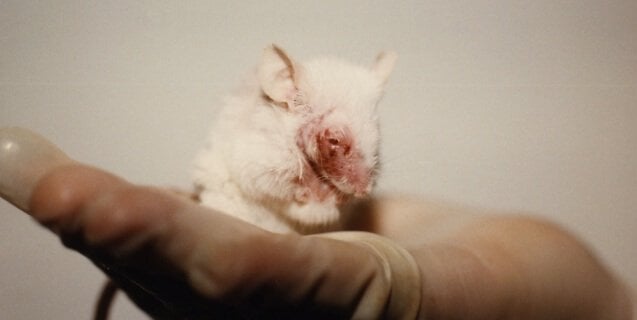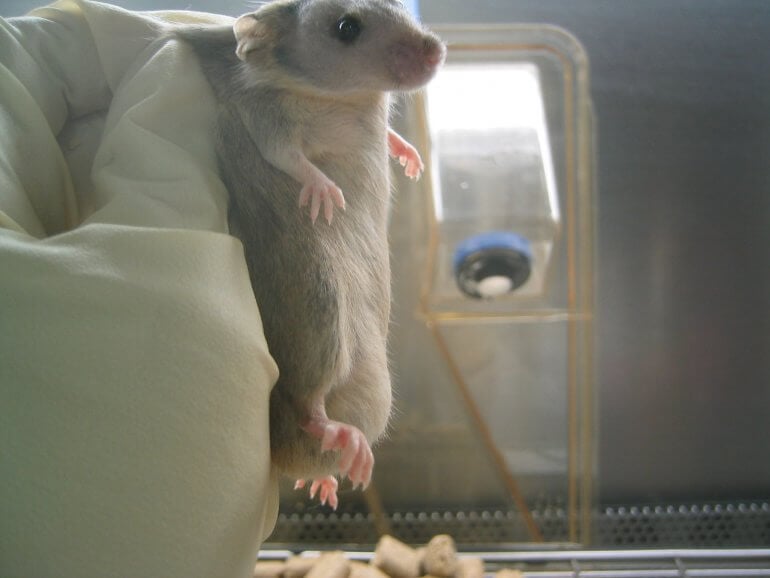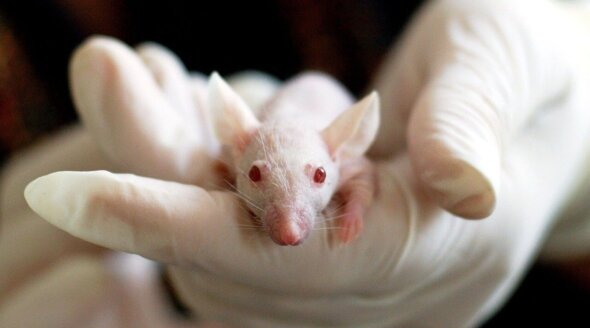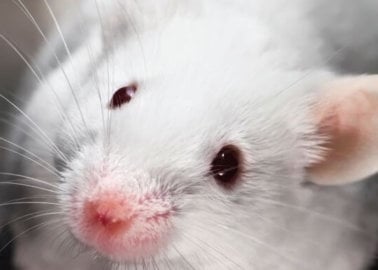New Report Reveals Mice Scalded to Death, Pups Starved
The release of the Home Office’s latest annual report providing details of non-compliance cases in British laboratories reveals that at least 2,680 animals suffered as a result of “oversights” by experimenters in 2018. But as previous reports have shown, this isn’t unusual – there are commonly systemic failures to provide even the most basic care. The report outlines only the non-compliance cases that were reported by the institutions or caught by Home Office inspectors.

One of the cases noted in the report occurred during an experiment in which five mice received nerve injections (to block pain signalling to the brain). After the cruel procedure, the distressed mice mutilated their own toes, causing damage to their paws. Four of them were killed – two of whom had bleeding paws – and one died. Instead of retracting the experimenter’s licence for failing to protect the particularly vulnerable mice, the Home Office responded by sending a “letter of reprimand” to the laboratory.
Another horrific incident met with a letter of reprimand was one in which a laboratory technician mistakenly put four mice through an autoclave, a high-pressure steam cleaner used for sterilising cages and equipment. All of them were scalded to death.
In another case, after killing a mother mouse, an experimenter removed labels and water from a cage without checking whether any mice pups were present. Two pups – who were left to starve without their mum – were found dead in the cage a week later.
Many other reported incidents – including one in which experimenters in another laboratory turned off air pumps that ventilated cages and three rats died – resulted in nothing more than a letter of reprimand, “retraining” of personnel, or “more regular inspections”.
Letters of reprimand do nothing to protect animals in laboratories – nothing for mice, desperate for companionship and peace; nothing for rats, curious and clever; nothing for any of the millions of animals in British laboratories, who only want to live free from harm. All experiments on animals are non-consensual acts of violence.
Calling attention to non-compliance cases might imply that there’s a right way to go about experimenting on animals, even though all experiments on animals are unethical. It’s important to recognise that individual animals used in the name of “science” suffer not only during the experiments themselves but also while languishing in between procedures – and a single human error can cost them their lives.
Life in a Laboratory
Imagine being locked away inside a cold, sterile place with no sunlight. Everything that’s natural and important to you is stripped away, and you’re left at the mercy of experimenters who appear to want to inflict pain on you repeatedly. They may puncture your skin with routine injections, apply chemicals to your eyes, or cut you open. They may kill you and treat you like a disposable laboratory tool.
This is often the reality for animals used in experiments: a lifetime of pain and suffering, only to be thrown away like an unfeeling object when they’re no longer of use to the experimenter.
Animal Experiments Are Bad Science
Studies show that 90% of basic research – most of which involves experiments on animals – fails to deliver treatments for humans. In some disease areas, such as HIV/AIDS and strokes, the failure rate is 100%.
The US National Institutes of Health notes that 95% of all drugs that are shown to be safe and effective in animal tests fail in human trials because they don’t work or are dangerous. Not only are these experiments claiming the lives of millions of animals, they are also delaying the development of treatments for humans in desperate need of them. And at a time when the COVID-19 pandemic is ravaging the globe, it’s more important than ever that we move towards reliable, non-animal testing methods.
What You Can Do
It’s vital that the government redirect funds to superior, non-animal methods – such as sophisticated tests using human cells and tissues and advanced computer-modelling techniques – which would benefit both humans and animals.
Will you join us by adding your name to our petition?





